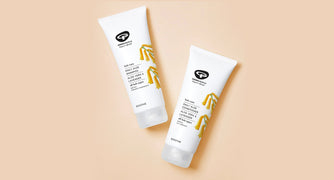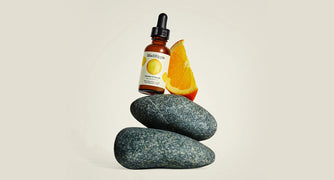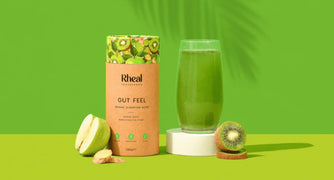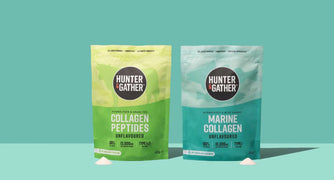According to a team of researchers at Kings College London around 1 in 7 people with symptomatic COVID-19 could be ill for at least 4 weeks, 1 in 20 for 8 weeks and 1 in 45 for 12 weeks or more. Termed ‘Long COVID’, how can we determine if we are susceptible and what can we do to protect ourselves?
The researchers further discovered that long COVID symptoms fall into two categories; one group is dominated by respiratory symptoms such as shortness of breath, as well as fatigue and headaches, whilst the second group is ‘multi-system’, affecting many parts of the brain, gut and heart. Furthermore, although older people are more likely to suffer with long COVID it is being seen across all age groups.
Clinicians have long been aware of post-viral side effects, especially fatigue. But what COVID-19, and now long COVID, has shown is that individuals with co-morbidities, such as obesity, and non-communicable diseases such as type 2 diabetes, cardiovascular disease, hypertension and others, are likely to suffer more, both during the acute phase of the virus, and also in the longer term. Perhaps, as the Lancet reported on 5 September 2020:
‘Covid-19 has shown that many of the tools required for fighting a pandemic are also those required to fight non-communicable diseases. COVID-19 could provide new insights into the interactions between the immune system and NCDs and potentially change the way we understand and treat these disorders’ The Lancet 5 September 396: 649
In short, building immune resilience is highly individual. Addressing our own genetic susceptibilities and current health status are key factors in reducing our susceptibility to any illness or disease, not just to COVID-19.
Some clues into how we can begin to address our own susceptibilities reside in the knowledge that the evolution of the immune system, diet and the microbiome are interconnected. Components of the diet have an effect on cells within the immune system by modulating the composition of the intestinal microbiota and its products. As a result, both overconsumption and malnutrition can have substantial effects on immune responses and inflammation. Since the gut microbiota plays a role in educating and regulating the immune system, it is not surprising that gut dysbiosis (imbalanced gut ecosystem) is a feature of disease including many infectious diseases and has also been described in COVID-19. Therefore, dietary approaches to achieve a healthy microbiota can benefit the immune system.
From a micronutrient perspective, a number of vitamins (A, B6, B12, folate, C, D and E) and trace elements (zinc, copper, selenium, iron) have been demonstrated to have key roles in supporting the human immune system and reducing risk of infections. Zinc and selenium seem to be particularly important in conferring antibacterial and antiviral defense.
Other essential nutrients including amino acids, fatty acids and antioxidants are also important. Antioxidants function by quenching or neutralizing free radicals. The generation of free radicals is a normal process in the body, and it does have some benefits. For example, it can help our bodies fight infection by killing invading pathogens like bacteria, viruses and parasites. However, when the production of free radicals overwhelms the body’s need for and capacity to neutralize them, cellular damage, inflammation and chronic disease can result.
So, optimising your diet is a critical tool to helping you gain immune resilience. Lifestyle and environmental factors also play a part.
The following are some general tips to help you take proactive decisions about our diet, lifestyle and environment:
1. Support gut health by:
- Eating a whole food diet featuring plenty of colourful vegetables. Specifically look to include
- Prebiotic/probiotic foods
- Healthy fats (balance of omega 3/6)
- Protein
- Red-coloured foods
- Leafy greens
- Herbs and spices
- Teas (Green, Black)
- Reducing processed foods
- Reducing exposure to chemicals from the environment and food: buy natural and organic where possible
You may also consider taking a good quality probiotic supplement to replenish levels of healthy gut flora. Optibac for Every Day Extra is a good multi-strain formula, which you could take together with S. boulardii to support gut immunity.
2. Improve antioxidant defense with a diet rich in antioxidant nutrients:
- Vitamins C and E
- Beta-carotene (orange and red foods)
- Polyphenol compounds, which are naturally occurring micronutrients in plants that have antioxidant properties
Eating a diet featuring a diverse range of plant foods is key!
3. Consider taking a course of zinc and selenium to replenish your stores (UK soils are typically depleted in selenium)
4. Optimise vitamin D levels – much research is emerging on the immune modulating effects of vitamin D and its ability to reduce severity of COVID-19 infection
5. Consider using medicinal herbs such as Andrographis – this medicinal plant, rich in flavonoids and polyphenols, has been shown to have anti-inflammatory and immunoregulatory effects. It has been used clinically for inflammatory diseases and anti-viral therapy. Studies point to the likely inhibitory effect of Andrographis on COVID-19, and further studies are recommended in this area
N.B. As with any new medication or supplement, please consult your clinician to advise on suitability and dosage.
6. Manage your stress levels
Stress can be broadly seen as ‘good’ and ‘bad’. Stress at levels you can handle can support mind-body resilience and protection from oxidative damage and brain volume increases. Very brief ‘acute’ stressors are associated with potentially adaptive up regulation of some parameters of natural immunity. Conversely, chronic elevated stress can promote oxidative damage and brain volume decreases. It dysregulates immune responses by changing the balance of immune cells and their response to triggers.
Are you appropriately experiencing stress or ‘stressed out’?
Chronic stress impacts the immune system
There is a recognised association between high levels of stress and:
- increased susceptibility to infections
- influence on the severity of disease
- changes in response to vaccines
- reactivation of latent viruses (e.g. glandular fever)
- slow wound healing
and finally … Laughter is medicine
We all know that having a good laugh makes us feel good, But did you know that it can help to boost your immunity by reducing stress? A study conducted in Loma Linda University demonstrated that laughter has a positive effect on modulating components of the immune system, including increased production of antibodies and activation of the body’s protective Natural Killer cells. Not bad for a dose of the giggles!
Guest post by Abir Hamza-Goodacre, BANT Registered Nutritional therapist offering nutrition consultations at Botanica Health.
- Burr, A., Bhattacharjee, A. and Hand, T. Nutritional Modulation of the Microbiome and Immune Response. Journal of Immunology, 205 (6) 1479-1487 (2020).
- Calder, A. Nutrition, Immunity and COVD-19. BMJ Nutrition, Prevention & Health, 0 (2020).
- Shi, T.H., Huang, Y.L, Chen, C. et al. Andrographolide and its fluorescent derivative inhibit the main proteases of 2019-nCoV and SARS-CoV through covalent linkage. Biochem Biophys Res Commun, 210, 533 (2020).
- Segerstorm, S.C. and Miller, G.E. Psychol Bull 2004;130(4):601-630.
- Gouin, J.P. Chronic Stress, Immune Dysregulation, and Health. American Journal of Lifestyle Medicine 2011 5: 476-485. Diagram adapted from Sapolsky RM Why zebras don’t get ulcers1996 WH Freeman and Co New York.






